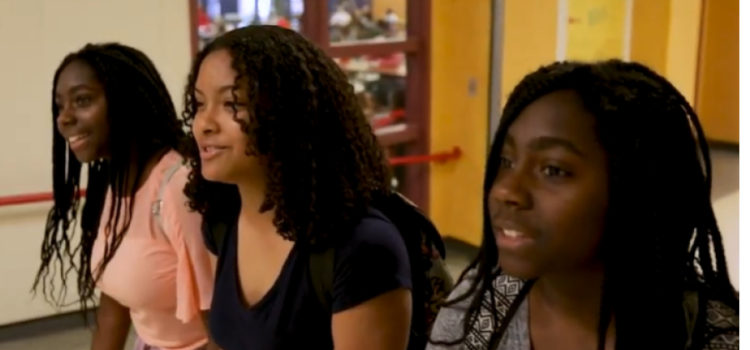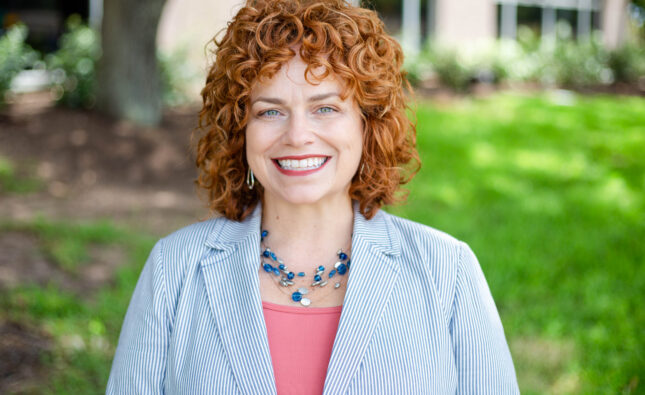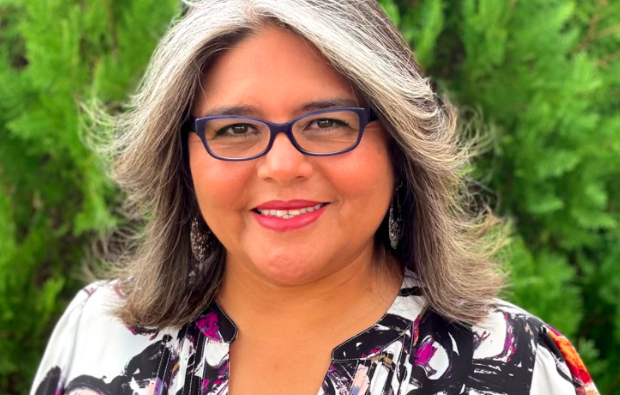John A. Jackson III is the father of Adriana, Jasmine and Jania, who are students at Hernandez Middle School in Round Rock ISD. During their 5th grade year, teachers offered the sisters an opportunity to take advanced math in 6th grade. They learned that advanced math builds problem solving and critical thinking skills important for success in college and career. They took the challenge. Today as 8th graders, Adriana and Jasmine are in geometry, while Jania takes Algebra 1.
In our March blog, we hear from the sisters and Mr. Jackson as they answer questions about their math journey, their motivation, support mechanisms, meeting challenges and their future. Watch their story here (version with Spanish subtitles click here) and download our Math Matters collateral in English, Spanish, Korean, and Vietnamese. To print or post our Info You Should Know on Math, click here.
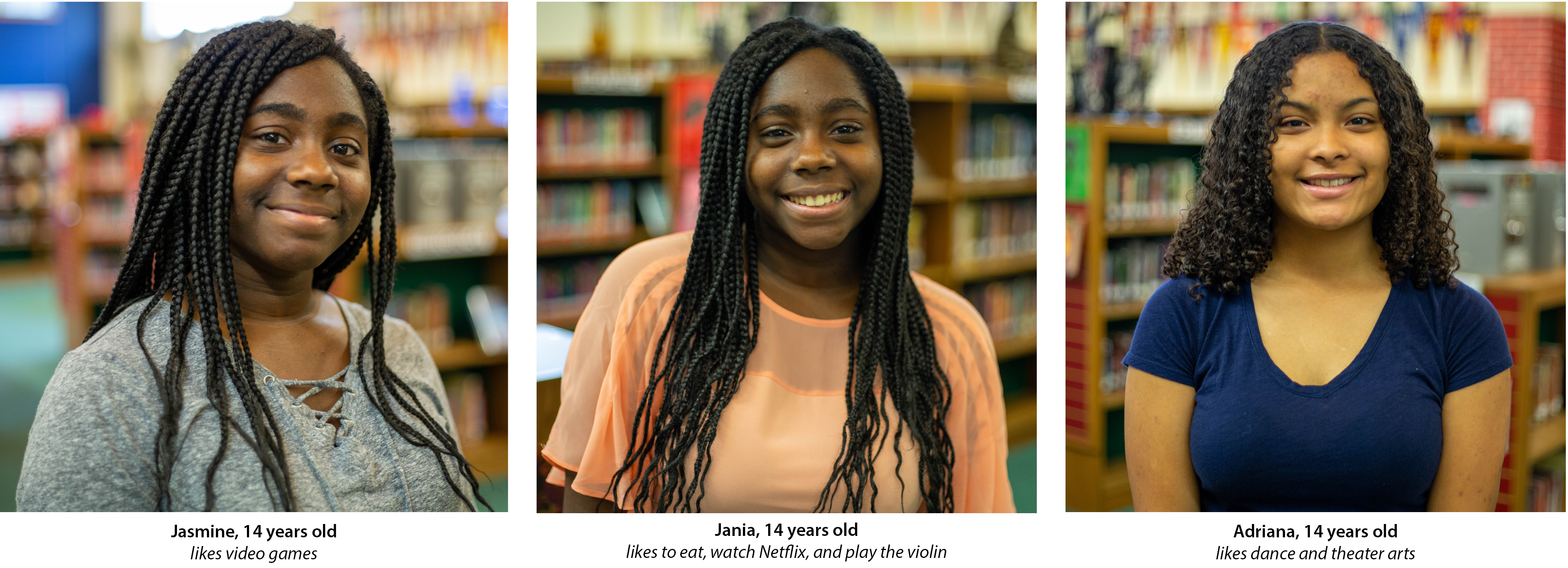 What do you think it means to have a math identity? What is your personal math identity?
What do you think it means to have a math identity? What is your personal math identity?
Jasmine: Having a math identity is your relationship with math. My personal math identify is distinguished by the relationship I have with math. Since elementary, I have been critiqued positively by peers, adults, administration and staff.
Jania: Having a math identity is your mindset towards math. My math identity is efficient because of the way I apply myself to my work. I was taught in elementary school that it is better to work harder now because it will affect you in the long run.
Adriana: Having a math identity is the way you apply yourself to math. My math identity is valuable given the fact that I work hard for it, and it gives me opportunities.
What helps you stay motivated in your math classes?
Jasmine: My motivation in class is knowing I am ahead of the game, of reaching my ultimate goal of being a psychiatrist or psychologist.
Jania: My motivation in class is my teacher, Mrs. Whyte, because she constantly pushes me to do better.
Adriana: My motivation in class is knowing I am showing good examples to others, so that way they are willing to apply themselves as well.
Can you speak about any challenging math tasks you have faced, and how you approached this challenge in order to overcome it?
Among the many challenges we faced included staying focused, balancing time between sleep, eating, extracurricular activities, homework, school, mental and physical relaxing, and just being a teenager. We overcome the challenge by having good time management and prioritizing from most important to least. A saying we have is: “Never stay longer than I need to.” Our time is valuable and not to be wasted.
What examples can you provide where you find yourself using math outside of math class?
Some examples when we use math is when we are baking, doing our eyebrows, playing sports, doing hair, redesigning our room, and cleaning.
What advice can you share with other students taking Algebra 1?
Jania: My advice for Algebra 1 students is to always believe in yourself, and you are not going to get it the first try, but you will get it later.
We hear you want to be a social worker. How might being in accelerated math help you in this field?
Jania: I now want to be a surgeon and accelerated math can help me with this because to be a surgeon requires a lot of math. I feel ahead of the game because I am already taking the classes that will help me get to that goal.
What do you enjoy most about taking Geometry this year?
Adriana and Jasmine: What we enjoy most about taking Geometry is the group collaboration, working with people on the same level.
What advice can you share with other students taking Geometry?
Adriana and Jasmine: The advice we can give is — it gets better! Always do your work and pay attention.
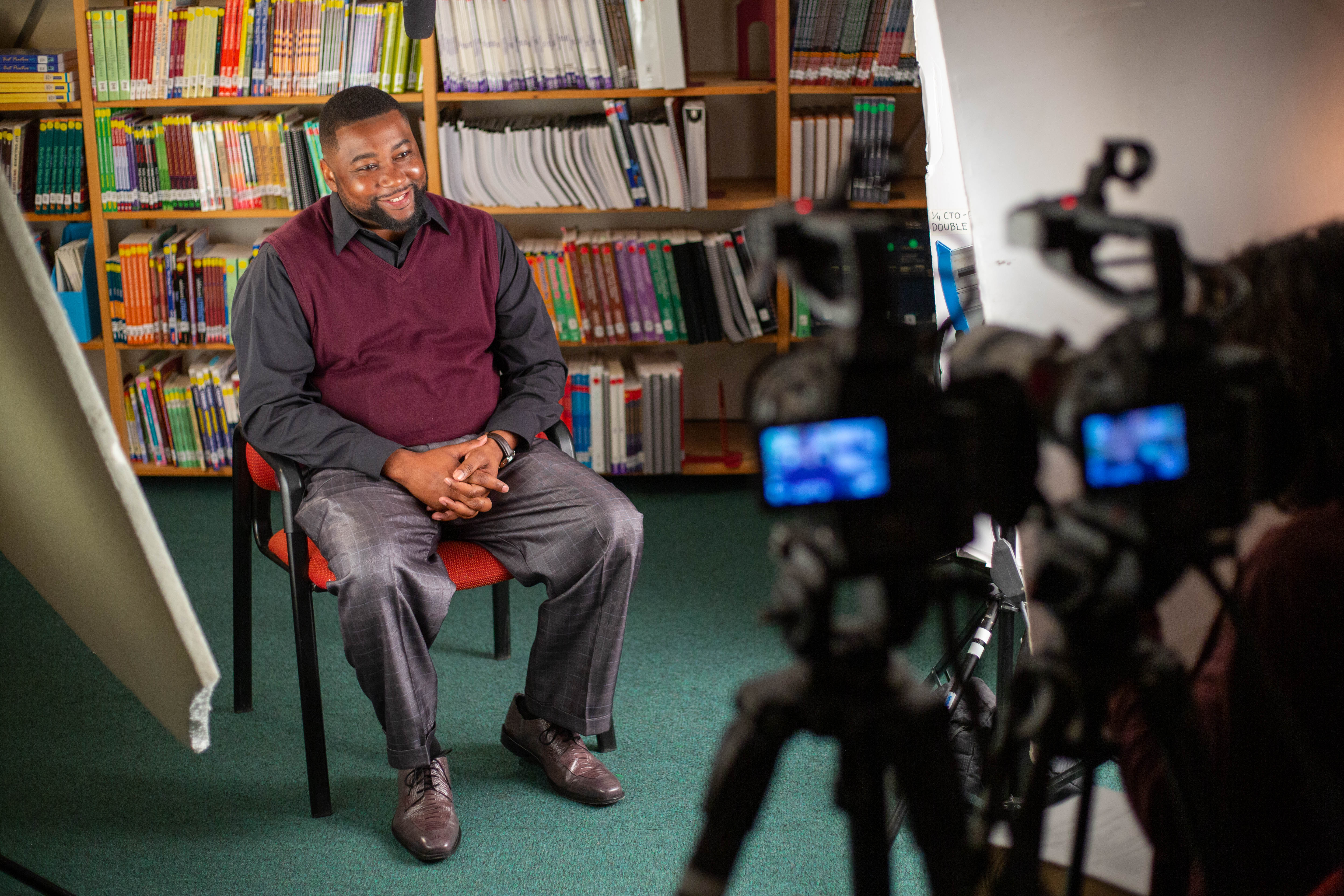 How do you support your daughters with their studying at home, either with math or other class subjects?
How do you support your daughters with their studying at home, either with math or other class subjects?
Mr. Jackson: I support my daughters by asking, “How was your day, and do you have any homework?” If they do, I ask if there is anything they help on. If they do need help, I assist them by showing them how to use the appropriate resources to get the answers they need. I do not believe in giving them answers but teaching them how to research and find the answers to their questions. I believe this helps prepare them for college and life in general.
Have you been able to connect with other parents to communicate with them about your daughters’ successes? If so, how can you describe your/your daughters’ journey and what advice would you provide other parents?
Mr. Jackson: Yes, I have. My daughters are mentally and physically tough, which allows them to achieve greatness in everything they do. They have been faced with adversity at a young age, which helps mold and shape them into the individuals they are today.
The advice I give parents is allow your child to fall down and pick themselves up, but be there to support them on their journey. Also, instill in their children it is their life and they must prepare for their future at the same time enjoying their childhood. Balance is the one word to use.
The different variations and challenges math present make you think outside the box and figure what works for you, which is like life in itself. All math is not created the same and what may work in one course may not work at all in another course.
If their child challenges themselves now in school, it will help them with the challenges they face in life.
As your daughters continue to challenge themselves academically, what has surprised you the most?
Mr. Jackson: Their endurance and ability to stay focused on their goals. They know where they are going and how to get there, and will not allow any outside distractions to stop them from going and getting what they want.






